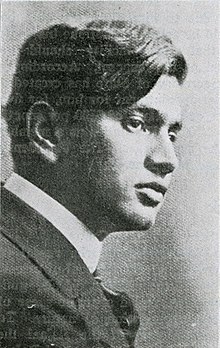We have decided to create the most comprehensive English Summary that will help students with learning and understanding.
Golu Grows a Nose Summary in English by Rudyard Kipling
Golu Grows a Nose Summary in English
It was a time when the elephant had no trunk. Golu was a baby elephant. He had only a bulgy nose. He ‘could only move it from side to side. But he couldn’t pick up things with it.
He was full of questions. He asked his aunt, the ostrich why she didn’t ever fly like other birds. He asked his tall uncle, the giraffe why his skin has spots. He asked the hippopotamus why his eyes were always red. Finally, he asked the monkey why melons tasted like melons.
One day Golu asked the mynah bird what the crocodiles always had for dinner. The bird directed him to the Limpopo river to find out. Taking a lot of sugarcanes, ba¬nanas and melons, he went to the great river. He met a python, and put his question and got no reply.
Golu moved on the river bank when he saw a log of wood. It was really the cunning crocodile. Golu put his question to him. He told that he would give the reply in his ear. It caught Golu by the nose, and told that today he would eat the elephant. It started dragging him hard into the stream.
Golu cried for help. The python came and coiled fast round Golu’s stomach. Both pulled very hard. At each pull Golu’s nose grew longer and longer. He was free at last.
In two days his nose grew cool but it did not shrink. Instead, it turned into a trunk. However, it proved to be very advantageous. Golu first hit a stinging fly dead with his trunk. Then he plucked the grass and put it into his mouth. The trunk enabled him to dig up some mud and throw it on his head. He thanked the python for its help.
Golu Grows a Nose Summary in Hindi
एक समय ऐसा भी था जब हाथी की सूंड नहीं होती थी। गोलू एक बच्चा हाथी था। उसकी नाक उभरी हुई थी। उसे वह इधर-उधर हिला तो सकता था पर उसके द्वारा कोई चीज उठा नहीं सकता था।
वह प्रश्न बहुत किया करता था। उसने अपनी चाची उस शुतरमुर्ग से पूछा कि आप अन्य पक्षियों की भाँति क्यों नहीं उड़ती हो। उसने अपने लम्बे चाचा जिराफ से पछा आपकी त्वचा पर ये धब्बे क्यों हैं। वह दरियाई घोडे से जराफ स पूछा आपका त्वचा पर ये धब्बे क्यों हैं। वह दरियाई घोड़े से प्रश्न करता है कि तुम्हारी आँखें हमेशा लाल क्यों होती हैं। अंत में वह बन्दर से पूछता है कि तरबूज का स्वाद तरबूज जैसा क्यों होता है।
एक दिन गोलू ने मैना पक्षी से पूछा कि मगरमच्छ रात्रि भोज में क्या खाते हैं। पक्षी ने उसे इसका पता लगाने के लिए लिम्पोपो नदी पर भेज दिया। ढेर सारे गन्ने, केले तथा तरबूज लेकर वह नदी की ओर चल दिया। रास्ते में उसे एक अजगर मिला, उसने उससे भी वही प्रश्न किया पर कोई उत्तर न मिला।
गोलू नदी तट पर पहुंचा जहाँ उसने लकड़ी का एक कुंदा देखा। वास्तव में वह धूर्त मगरमच्छ ही था। गोलू ने उससे अपना सवाल पूछा। उसने कहा वह जवाब उसके कान में देगा। उसने गोलू की नाक पकड़ ली और कहा आज वह हाथी का भोजन करेगा। उसने उसे जोर लगा कर नदी में खींचना शुरु कर दिया।
गोलू ने सहायता की गुहार लगाई। अजगर ने आकर गोलू के पेट को लपेट लिया। दोनों पूरा जोर लगाते रहे। हर खिंचाव के साथ गोलू की नाक लम्बी होती गई। अंत में वह पकड़ से छूट गया।
दो दिनों में उसकी नाक ठण्डी हो गई किन्तु सिकुड़ी नहीं। बल्कि वह सैंड बन गई। यह काफी लाभदायक हुआ। सबसे पहले गोलू ने डंक मारती मक्खी को सूंड से मार दिया। फिर उसने घास उखाड़ी और उसे अपने मुँह तक पहुँचा दिया। सूंड़ ने उसे मिट्टी खोदकर अपने सिर पर डालने में मदद कर दी। गोलू ने अजगर की सहायता के लिये उसे आभार व्यक्त किया।

